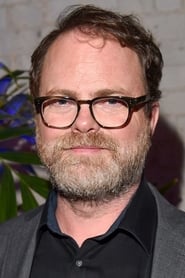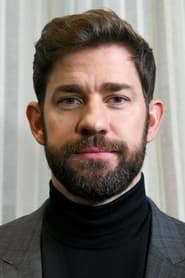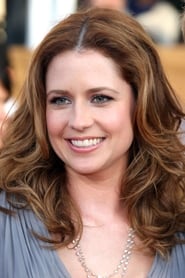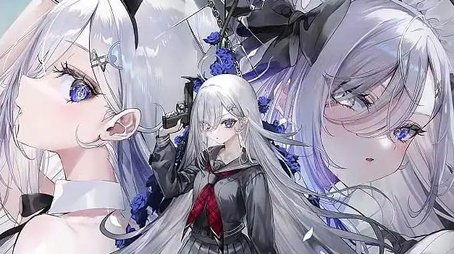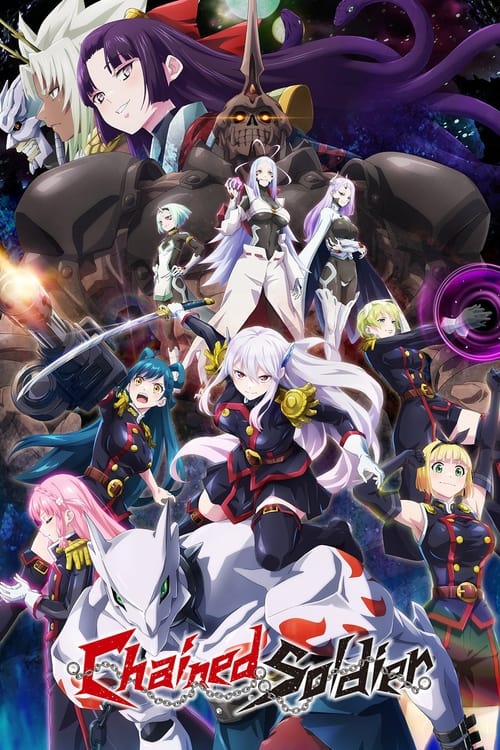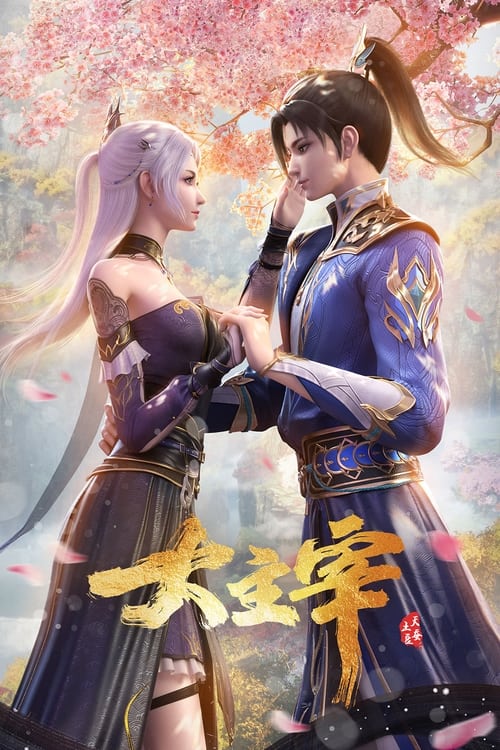
Ask Your Own Question
What is the plot?
The episode begins with a lively atmosphere as the cast and crew of "The Office" gather at the William S. Paley Television Festival in Los Angeles. The audience is filled with fans eager to hear from their favorite characters and creators. The event is hosted by a moderator who introduces the panel, which includes key cast members such as Steve Carell (Michael Scott), Rainn Wilson (Dwight Schrute), John Krasinski (Jim Halpert), Jenna Fischer (Pam Beesly), and others. The excitement in the room is palpable as the audience claps and cheers for the cast.
As the panel discussion begins, the moderator asks the cast about their experiences working on the show. Each actor shares personal anecdotes and insights into their characters. Steve Carell, embodying Michael Scott's over-the-top personality, humorously recounts moments from filming, showcasing his commitment to the role. Rainn Wilson, in character as Dwight, adds his own quirky commentary, eliciting laughter from the audience. The chemistry among the cast members is evident, as they play off each other's jokes and stories, creating a warm and engaging atmosphere.
The conversation shifts to the show's writing and creative process. The writers, including Greg Daniels and Mindy Kaling, discuss how they develop storylines and character arcs. They emphasize the importance of collaboration and how the cast often contributes ideas that shape their characters. The audience is intrigued by behind-the-scenes stories, such as how certain scenes were improvised or how specific character traits were inspired by real-life experiences.
As the panel continues, the moderator opens the floor to questions from the audience. Fans eagerly raise their hands, and a variety of questions are posed. Some inquire about the future of the show, while others ask about specific episodes or character decisions. The cast responds with enthusiasm, often joking and teasing each other, which adds to the lighthearted tone of the event. One fan asks about the romantic tension between Jim and Pam, prompting a discussion about their relationship development throughout the series.
The panel takes a more emotional turn when the cast reflects on the impact of the show on their lives and careers. Jenna Fischer shares her personal journey and how playing Pam has shaped her as an actress. Steve Carell expresses gratitude for the opportunity to portray Michael Scott, highlighting the character's growth and the lessons learned throughout the series. The audience can feel the genuine affection the cast has for each other and the show, creating a heartfelt moment that resonates with fans.
As the event nears its conclusion, the moderator invites the cast to share their favorite moments from the series. Each actor recounts memorable scenes, from hilarious pranks to touching moments of camaraderie. Rainn Wilson recalls the time Dwight tried to impress Angela, while John Krasinski reminisces about the iconic proposal scene. The laughter and nostalgia fill the room, as fans relive these cherished moments through the cast's stories.
The panel wraps up with a final round of applause from the audience, who are clearly appreciative of the cast's openness and humor. The cast members express their gratitude to the fans for their support, emphasizing how much they value the community that has formed around the show. As they leave the stage, the energy in the room remains high, with fans buzzing about the insights they gained and the connections they feel to the characters.
The episode concludes with a montage of clips from "The Office," showcasing some of the most beloved moments from the series. The audience is left with a sense of nostalgia and joy, celebrating the unique blend of humor and heart that has made "The Office" a cultural phenomenon. The final shot captures the cast waving goodbye, leaving fans with a lasting impression of their favorite workplace comedy.
What is the ending?
In the ending of "The William S. Paley Television Festival: The Office," the cast and crew of the show participate in a panel discussion, reflecting on their experiences and the impact of the series. The event concludes with a sense of camaraderie and appreciation for the journey they have shared, highlighting the relationships formed both on and off-screen.
As the panel begins, the audience is filled with fans eager to hear from their favorite characters. The moderator introduces the cast, and they take their seats, visibly excited yet nervous. Steve Carell, who plays Michael Scott, shares anecdotes about his time on the show, recalling the unique blend of humor and heart that defined their workplace comedy. His warmth and sincerity resonate with the audience, evoking laughter and applause.
Next, Rainn Wilson, portraying Dwight Schrute, brings his signature eccentricity to the discussion. He passionately discusses his character's quirks and the evolution of Dwight throughout the series. His enthusiasm is infectious, and the audience responds with cheers, showcasing the deep connection fans have with the characters.
As the conversation flows, Jenna Fischer, who plays Pam Beesly, reflects on her character's journey from receptionist to a more empowered role. She speaks about the importance of love and support in the workplace, particularly her relationship with Jim Halpert, played by John Krasinski. Their chemistry is palpable, and the audience is captivated by their shared stories of romance and friendship.
The panel also addresses the challenges of creating a mockumentary-style show, with Mindy Kaling and B.J. Novak discussing the writing process and the collaborative spirit that fueled their creativity. They share laughs over memorable moments and the improvisational nature of their work, emphasizing the joy of being part of such a groundbreaking series.
As the event nears its conclusion, the cast expresses gratitude to the fans for their unwavering support. They reflect on the show's legacy and the impact it has had on popular culture. The atmosphere is filled with nostalgia and appreciation, as the audience stands to give a heartfelt ovation.
In the final moments, the cast members share a group hug, symbolizing their bond and the friendships forged during their time together. The screen fades to black, leaving viewers with a sense of closure and warmth, encapsulating the essence of "The Office" and the lasting connections it created. Each character, from Michael to Pam, leaves the stage with a sense of fulfillment, having contributed to a beloved series that will be remembered for years to come.
Is there a post-credit scene?
In "The William S. Paley Television Festival: The Office," there is no post-credit scene. The episode primarily consists of a panel discussion featuring the cast and crew of "The Office," where they reflect on the show, share behind-the-scenes stories, and answer questions from the audience. The focus is on the insights and experiences of the actors and creators, rather than a narrative continuation or additional scene typical of a post-credit sequence. The atmosphere is lively and engaging, with moments of humor and camaraderie among the cast members, but it concludes without any additional scenes or content after the main discussion.
What insights do the cast members provide about their characters during the festival?
During the William S. Paley Television Festival, the cast members share personal anecdotes and insights about their characters. For instance, Steve Carell discusses Michael Scott's obliviousness and his desire to be liked, revealing the emotional depth behind Michael's often misguided attempts at leadership. Rainn Wilson reflects on Dwight Schrute's eccentricities and his fierce loyalty to the company, showcasing how Dwight's quirks stem from a deep-seated need for validation.
How do the cast members describe the dynamics between Michael and Dwight?
The cast members delve into the unique relationship between Michael and Dwight, highlighting the complexities of their boss-employee dynamic. Carell emphasizes Michael's need for Dwight's unwavering support, while Wilson points out that Dwight sees Michael as a father figure, despite Michael's frequent failures. This interplay of admiration and frustration is a recurring theme in their discussions.
What do the actors reveal about the show's comedic style and its evolution?
The actors discuss the show's distinctive blend of mockumentary style and character-driven humor. They reflect on how the improvisational nature of the filming process allowed for spontaneous moments that became iconic, such as Jim's pranks on Dwight. They also note how the show's humor evolved over the seasons, becoming more nuanced and character-focused, particularly as the relationships deepened.
What do the cast members say about the impact of the show's setting on character development?
The cast members talk about how the Dunder Mifflin office setting serves as a microcosm for the characters' lives. They explain that the confined space fosters both camaraderie and conflict, allowing for rich character development. For example, Jenna Fischer discusses how Pam's growth is closely tied to her experiences within the office, from her initial shyness to her eventual assertiveness.
How do the actors reflect on the show's portrayal of workplace relationships?
The actors reflect on the show's authentic portrayal of workplace relationships, emphasizing the blend of humor and heart. They discuss how the interactions between characters, such as the romantic tension between Jim and Pam, resonate with viewers because they mirror real-life dynamics. Fischer shares her thoughts on how these relationships evolve over time, highlighting the importance of friendship and support in a work environment.
Is this family friendly?
The episode "The William S. Paley Television Festival: The Office" is generally family-friendly, but it does contain some elements that may be considered objectionable or upsetting for children or sensitive viewers. Here are a few aspects to be aware of:
-
Mature Themes: The discussion among the cast and crew may touch on adult themes related to relationships, workplace dynamics, and personal experiences that might not be suitable for younger audiences.
-
Language: There may be occasional mild profanity or suggestive language that could be inappropriate for children.
-
Humor Style: The humor often includes sarcasm and awkward situations that might be uncomfortable for some viewers, particularly those sensitive to social interactions.
-
Character Behavior: Some characters exhibit behavior that could be seen as inappropriate or unprofessional, which might not set a good example for younger viewers.
Overall, while the episode is not overtly offensive, it does contain elements that may require parental discretion.


